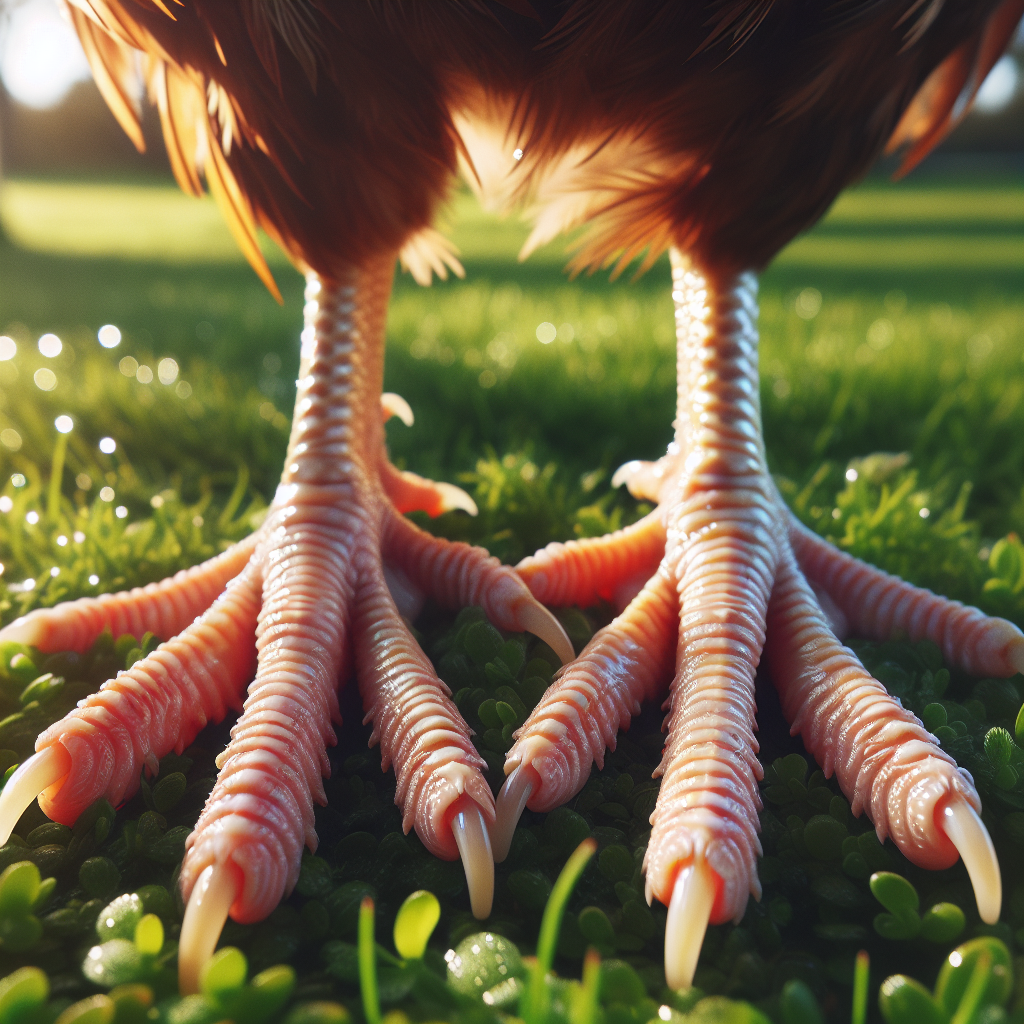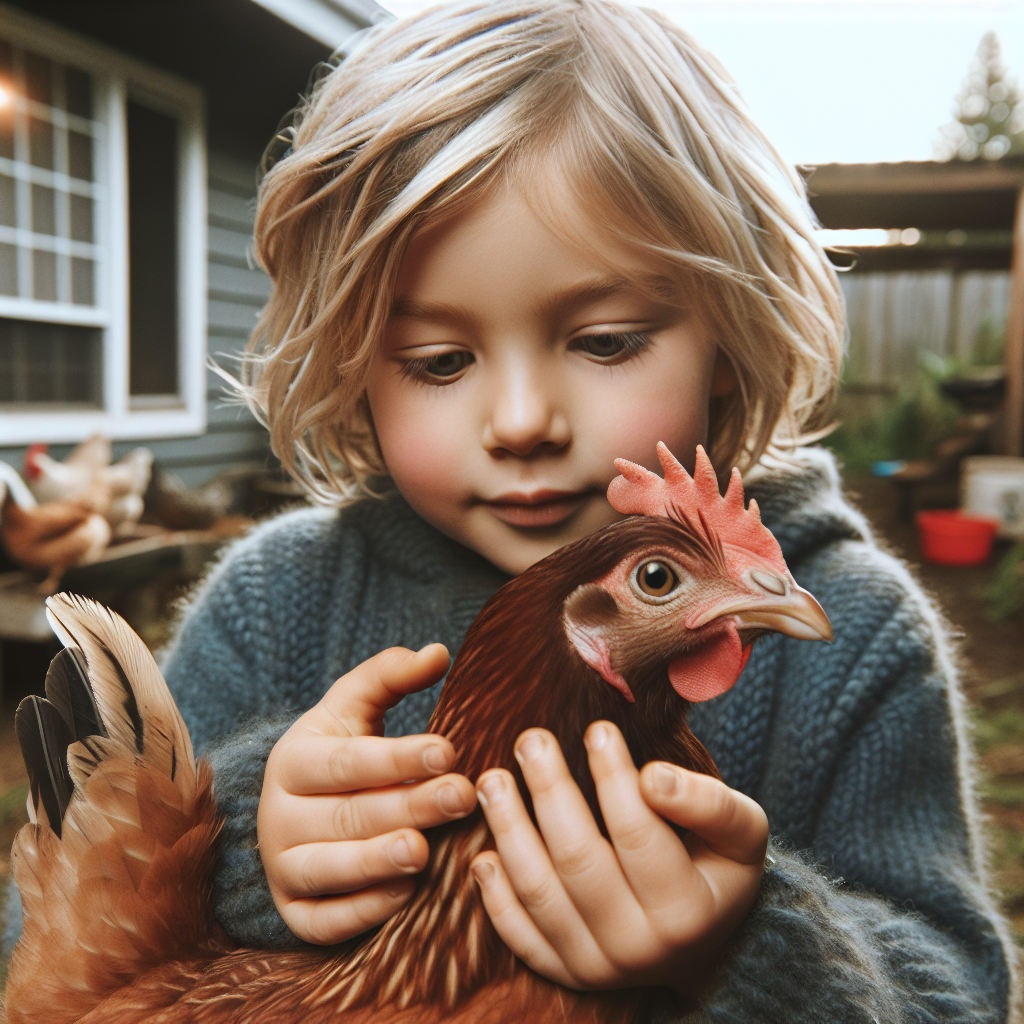If you’re a backyard chicken enthusiast, you understand the joy and satisfaction that comes from raising a flock of feathered friends. However, like any living beings, chickens are susceptible to diseases and ailments that can jeopardize their health and well-being. As a responsible chicken owner, it’s crucial to know how to effectively manage and prevent these issues. In this article, we will explore some practical tips and strategies to help you proactively care for your backyard chickens, ensuring their optimal health and happiness. From recognizing common symptoms to implementing proper hygiene practices, this guide will empower you to be a knowledgeable and proactive caretaker for your feathered friends.
Prevention and Biosecurity Measures
Vaccination
Vaccination is an essential aspect of disease prevention in backyard chickens. By ensuring that your flock is vaccinated, you can significantly reduce the risk of common diseases and prevent their spread. It is crucial to consult with a veterinarian to determine the appropriate vaccination schedule for your chickens, as it may vary depending on their age, breed, and the prevalent diseases in your region.
Quarantine
Implementing a quarantine protocol is another effective measure in preventing the introduction and spread of diseases in your flock. When introducing new chickens to your existing flock, it is essential to isolate them for a certain period, typically two to three weeks. This quarantine period allows you to observe the new chickens for any signs of illness before introducing them to the rest of your flock.
Biosecurity Protocols
Establishing proper biosecurity protocols is crucial for maintaining a healthy flock. This includes limiting visitors to your coop, disinfecting equipment and footwear, and maintaining strict hygiene practices. Practicing good biosecurity not only prevents the introduction of diseases but also minimizes the risk of transmission within your flock.
Proper Diet and Nutrition
Providing your chickens with a balanced and nutritious diet is vital for maintaining their overall health and immune system. Make sure their diet includes a combination of high-quality feed, fresh water, and appropriate supplements. Consult with a poultry nutritionist or veterinarian to ensure that your chickens are receiving the necessary nutrients for optimal health.
Clean and Sanitized Environment
Maintaining a clean and sanitized environment is crucial in preventing the spread of diseases in your flock. Regularly clean and disinfect the coop, including feeding and watering equipment, nesting boxes, and perches. Proper waste management is also essential to prevent the buildup of bacteria and parasites. Ensure that you follow safe and effective cleaning practices to minimize the risk of disease transmission.
Common Diseases in Backyard Chickens
Infectious Bronchitis
Infectious Bronchitis is a highly contagious viral disease that affects the respiratory system of chickens. Common symptoms include sneezing, coughing, nasal discharge, and reduced egg production. Vaccination is available for Infectious Bronchitis, and it is essential to implement proper biosecurity measures to prevent its spread.
Avian Influenza
Avian Influenza, commonly known as bird flu, is a viral infection that can cause severe illness and mortality in chickens. It is a significant concern due to its potential transmission to humans. Symptoms include respiratory distress, decreased egg production, and sudden death. Preventing Avian Influenza requires strict adherence to biosecurity measures and monitoring for any signs of illness.
Marek’s Disease
Marek’s Disease is a highly contagious viral disease that affects young chickens, particularly between the ages of 12 and 25 weeks. It primarily targets the nervous system, causing paralysis and tumors. Vaccination is available to prevent Marek’s Disease, and it is essential to practice proper biosecurity to minimize its spread between flocks.
Newcastle Disease
Newcastle Disease is a contagious viral disease that affects the respiratory, digestive, and nervous systems of chickens. Symptoms can range from mild respiratory issues to severe neurological signs and high mortality rates. Vaccination and strict biosecurity protocols are crucial in preventing the introduction and spread of Newcastle Disease.
Coccidiosis
Coccidiosis is a parasitic infection caused by protozoa that affects the intestinal tract of chickens. It can lead to diarrhea, reduced growth, and increased mortality rates. Proper sanitation and regular deworming can help prevent the transmission and minimize the impact of Coccidiosis in your flock.
Fowl Pox
Fowl Pox is a viral infection that affects chickens, causing lesions on their skin and mucous membranes. It can be transmitted through mosquito bites or direct contact with infected birds. Good biosecurity practices, such as maintaining a clean environment and preventing mosquito breeding areas, can help prevent the spread of Fowl Pox.
Salmonellosis
Salmonellosis is a bacterial infection commonly associated with poultry, including backyard chickens. It can cause diarrhea, reduced egg production, and even severe illness in humans. To prevent Salmonellosis, ensure proper hygiene practices, such as washing hands after handling chickens or their waste, and avoiding cross-contamination with other food products.
Recognizing Signs of Illness
Changes in Behavior or Temperament
One of the first signs of illness in chickens is a noticeable change in their behavior or temperament. This can include lethargy, depression, aggression, or excessive vocalization. Pay close attention to any unusual behavior and investigate further if necessary.
Decreased Appetite or Weight Loss
A decrease in appetite or noticeable weight loss can be an indication of illness in chickens. Monitor their eating habits and body condition regularly to identify any potential health issues.
Reduced Egg Production or Abnormal Eggs
If you notice a sudden decrease in egg production or the presence of abnormal eggs, such as soft-shelled or misshapen eggs, it may be a sign of illness. Disease or stress can impact a chicken’s reproductive system, leading to reduced egg production or abnormalities.
Respiratory Difficulties
Respiratory difficulties, such as coughing, sneezing, wheezing, or nasal discharge, can be an indication of respiratory infections or diseases. Monitor your chickens closely for any signs of respiratory distress and seek veterinary attention if necessary.
Diarrhea or Abnormal Feces
Diarrhea or abnormal feces can be a sign of gastrointestinal infections or parasites. Pay attention to the consistency, color, and frequency of their droppings to detect any abnormalities that may indicate illness.
Diagnostic Techniques
Veterinary Consultation
If you suspect that your chickens are ill, it is essential to consult with a veterinarian who specializes in poultry health. They can provide guidance, conduct appropriate diagnostic tests, and recommend treatment options based on the specific symptoms and circumstances.
Physical Examination
A thorough physical examination by a veterinarian is often the first step in diagnosing poultry diseases. The vet will assess your chickens’ overall condition, including their body weight, vital signs, and any visible abnormalities.
Laboratory Tests
Laboratory tests, such as blood tests, fecal examinations, or tissue analysis, may be necessary to confirm a diagnosis. These tests can help identify the specific disease or parasite affecting your chickens and guide the appropriate treatment.
Post-Mortem Examination
In cases where chickens have died unexpectedly, a post-mortem examination, also known as necropsy, can provide valuable information about the cause of death. This procedure involves the careful examination of the internal organs to identify any abnormalities or signs of disease.
Treatment Options
Antibiotics and Medications
In some cases, antibiotics or other medications may be necessary to treat bacterial or parasitic infections. It is crucial to consult with a veterinarian to determine the most appropriate treatment options and ensure the responsible use of antibiotics.
Natural Remedies
Natural remedies, such as herbal supplements or essential oils, can be used as complementary treatments or preventive measures in backyard chicken health. However, it is important to consult with a poultry health professional or veterinarian before using any natural remedies to ensure their safety and effectiveness.
Isolation and Supportive Care
When a chicken is diagnosed with a contagious disease, isolation is crucial to prevent its spread to other members of the flock. Additionally, providing supportive care, such as keeping them warm, hydrated, and well-fed, can help in the recovery process.
Parasite Control
External Parasites (Lice, Mites)
External parasites, such as lice and mites, can cause discomfort and health issues in chickens. Regularly inspect your chickens for signs of infestation, such as feather loss, skin irritation, or the presence of parasites. Treat affected birds promptly using appropriate veterinary-recommended products or natural remedies.
Internal Parasites (Worms)
Internal parasites, such as worms, can also negatively impact the health of your flock. Regular de-worming treatments, as recommended by a veterinarian, can help control and prevent worm infestation.
Preventing and Managing Parasites
Regular Parasite Checks and Treatments
Implement a regular schedule for parasite checks and treatments to ensure early detection and effective management. Consult with a veterinarian to determine the appropriate deworming products and frequency based on your flock’s specific needs.
Good Sanitation Practices
Maintain a clean and hygienic environment by regularly cleaning the coop, removing droppings, and providing fresh bedding. This helps to minimize the presence and spread of parasites in your flock.
Diatomaceous Earth and Other Natural Remedies
Natural remedies, such as diatomaceous earth, can be used alongside regular sanitation practices to help manage parasites. However, it is important to research and follow proper usage guidelines to ensure their effectiveness and safety for chickens.
Stress Management
Reducing Overcrowding
Overcrowding can lead to increased stress levels and the spread of diseases among chickens. Ensure that your flock has enough space to move comfortably and establish a pecking order without excessive aggression.
Adequate Ventilation and Temperature Control
Proper ventilation and temperature control are essential for maintaining a healthy and stress-free environment for your chickens. Ensure that the coop is well-ventilated, with proper airflow and temperature regulation to prevent respiratory issues.
Minimize Disturbances and Stressors
Avoid unnecessary disturbances or stressors in your chickens’ environment, such as sudden loud noises or constant harassment by predators. Implement strategies to minimize stress and create a calm and secure environment for your flock.
Provide Enrichment and Socialization
Enrichment activities, such as providing perches, toys, and opportunities for foraging, can alleviate boredom and promote natural behaviors. Additionally, socialization within the flock is crucial for maintaining a harmonious and stress-free environment.
Emergency Preparedness
First Aid Kit and Supplies
Prepare a well-stocked first aid kit specifically for your chickens, including essential items such as wound disinfectants, bandages, and basic medical supplies. Having these supplies readily available can help provide immediate care in case of injuries or emergencies.
Emergency Contact Information
Keep a list of emergency contact information, including the phone numbers of local veterinarians who specialize in poultry health. In case of an emergency, having this information easily accessible can ensure quick and appropriate medical attention for your chickens.
Isolation Area
Designate a separate isolation area within your coop or premises to house sick or injured chickens. This area should be equipped with proper bedding, water, and feed, as well as isolation measures to prevent the spread of contagious diseases.
Knowledge of Local Veterinary Services
Familiarize yourself with local veterinary services that specialize in poultry health. This knowledge will prove invaluable in times of need and enable you to seek prompt and professional assistance when dealing with chicken diseases or emergencies.
Continual Monitoring and Record Keeping
Observation of Flock Behavior and Performance
Regularly observe your flock’s behavior, activity levels, and overall performance. Pay attention to any changes or abnormalities, as these can serve as early indicators of illness or other health issues.
Regular Health Check-ups
Schedule regular health check-ups with a veterinarian who specializes in backyard poultry. These check-ups can help identify potential issues before they escalate and provide guidance on maintaining optimal flock health.
Record Keeping for Treatments and Observations
Maintain detailed records of any treatments administered, vaccines given, and observations made regarding your chickens’ health. This record-keeping can help track patterns, identify potential triggers, and guide future management decisions.
Managing diseases and ailments in backyard chickens effectively requires a proactive approach that focuses on prevention, early detection, and appropriate treatment. By implementing proper biosecurity measures, providing a nutritious diet, maintaining a clean environment, and monitoring your flock closely, you can significantly reduce the risk of diseases and ensure the health and well-being of your chickens.




